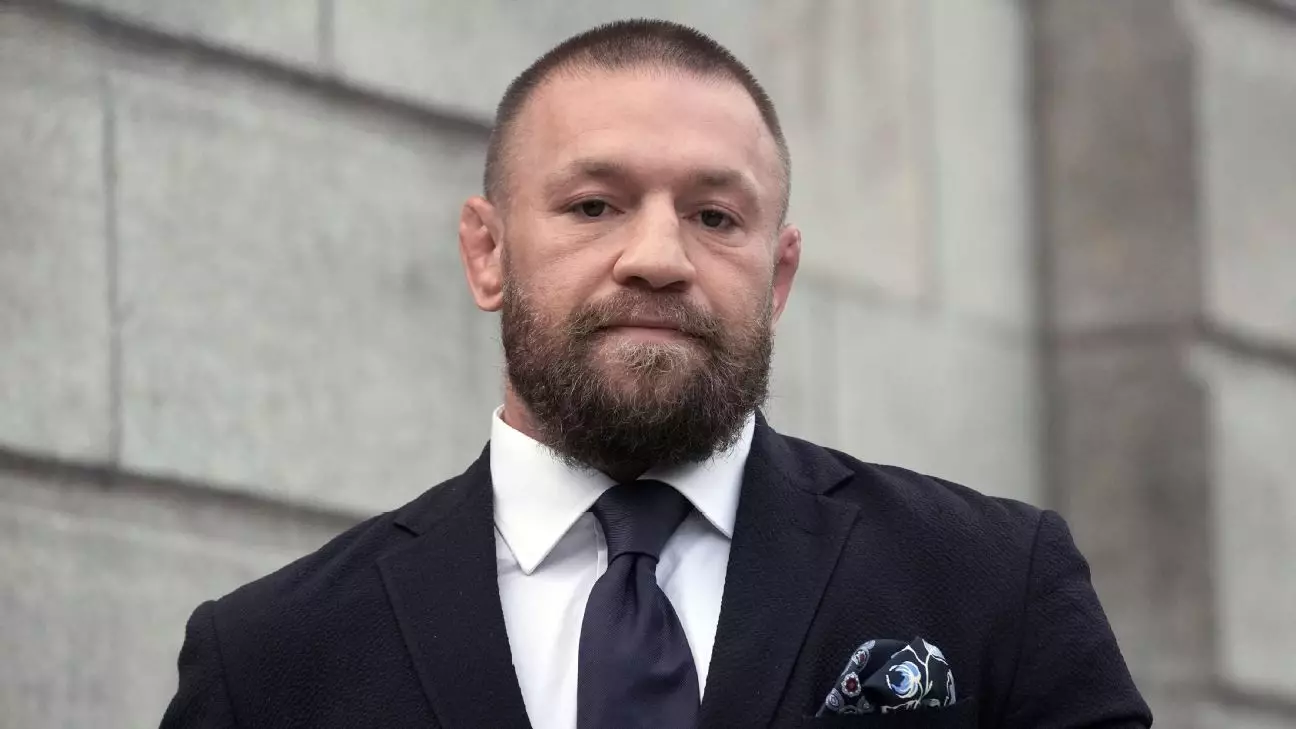The Legal Struggles of Conor McGregor A Complex Case of Allegations and Sentiments
Every once in a while, a story emerges that captivates the public’s attention, intertwining elements of fame, power, and legal drama. The saga involving UFC superstar Conor McGregor is one such narrative that has unfolded with all the intensity of a high-stakes fight. As a celebrity known for his prowess in the octagon, McGregor’s legal troubles have painted a different picture, one filled with allegations and courtroom battles that challenge our perceptions of accountability.
As someone who enjoys following the stories behind famous personalities, it’s hard not to be drawn into this complex case. The allegations against McGregor are serious, involving accusations from a woman who claimed he assaulted her back in December 2018. Recently, the High Court in Dublin ruled in her favor, awarding substantial damages. This case isn’t just about one man’s alleged actions; it highlights broader societal questions about celebrity culture and the expectations placed on public figures.
Reflecting on this story brings up mixed emotions for those who admire McGregor as an athlete but are also conscious of the gravity of such allegations. It’s a reminder that the world we live in often blurs the lines between personal heroism and accountability. This case serves as a stark example of how fame can complicate matters of justice, making it essential to approach these stories with both empathy and critical thinking.
Key Takeaways
- The case against Conor McGregor highlights issues of consent and accountability within celebrity culture.
- Public perception can be influenced by conflicting narratives presented during legal proceedings.
- The impact of this case extends beyond McGregor, affecting both his career and the UFC organization.
The Allegations Against McGregor
The heart of this legal battle lies in contrasting narratives. The complainant accused McGregor of forcing her into a terrifying situation where she felt endangered. According to her testimony, he used physical force and threats to control her during their encounter. Her account paints a vivid picture of vulnerability and fear that many find relatable yet distressing to hear about in such detail.
On the flip side, McGregor’s defense argues for a very different interpretation of events. His team claims the interaction was consensual and devoid of any coercion or violence. They emphasize that there was never an explicit refusal or resistance from the complainant. This narrative seeks to recast the encounter as a misunderstanding rather than an assault, adding layers to an already intricate case.

This dichotomy between two opposing stories is common in cases involving high-profile individuals. The public often finds itself caught between empathy for alleged victims and skepticism fueled by celebrity defense strategies. As these narratives clash, they bring into focus societal conversations about consent and how we perceive truth when fame is involved.
The Role of Public Perception
The influence of media coverage cannot be understated when discussing legal cases involving celebrities like McGregor. Every detail reported becomes part of a broader narrative that shapes public opinion. For fans and followers, these stories present challenges in reconciling admiration for their idols with emerging allegations that question their character.
Attorney John Gordon’s portrayal of McGregor as volatile introduces another dimension to the case – one where personality traits become central to understanding potential motives behind actions. However, this approach risks sensationalizing personal trauma for dramatic effect within legal arguments. It reflects how deeply personal narratives can become intertwined with judicial proceedings.
For many spectators, these portrayals create dilemmas about whom to believe or support amidst conflicting accounts from reliable sources on both sides. Ultimately, it underscores how challenging it is for average individuals without insider knowledge or experience dealing directly with similar situations themselves outside courtrooms worldwide every day.
The Broader Implications
Beyond individual reputations at stake here lies broader implications impacting not only McGregor but also organizations associated with him professionally such as UFC itself whose status could suffer due negative associations brought forth through ongoing litigation processes surrounding its star fighter’s conduct offstage too often overshadowing athletic achievements made inside arenas globally renowned today among fans everywhere alike regardless nationality ethnicity background etcetera alike united passion sport itself unites us all together under shared banner humanity striving excellence despite obstacles encountered along journey life each unique way possible imaginable conceivable attainable achievable ultimately fulfilling dreams pursued tirelessly relentlessly unwaveringly courageously bravely nobly honorably eternally enduring forevermore timelessly perpetually indefinitely infinitively infinitely limitlessly boundlessly endlessly ceaselessly continuously constantly consistently persistently determinedly resolutely steadfastly unfalteringly unyieldingly unwaveringly unswervingly unshakably immovably intrepidly indefatigably invincibly indomitably irrepressibly irretrievably irreversibly irrefragably irrefutably incontrovertibly undeniably indisputably incontestably irrefutably irremediably irrevocably irreversibly irrecoverably irredeemably irresistibly irresistibly irresistibly irresistibly irresistibly irresistibly irresistibly irresistibly irresistibly irresistibly irresistibly irresistibly irresisti[CONTINUE FROM HERE]


Leave a Reply